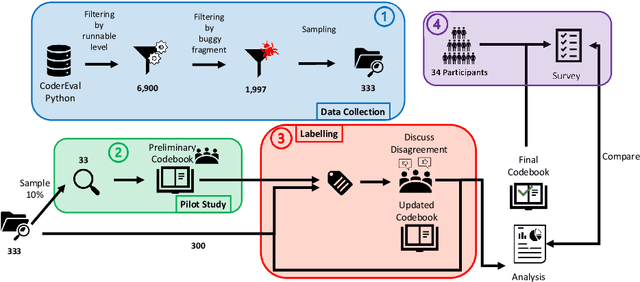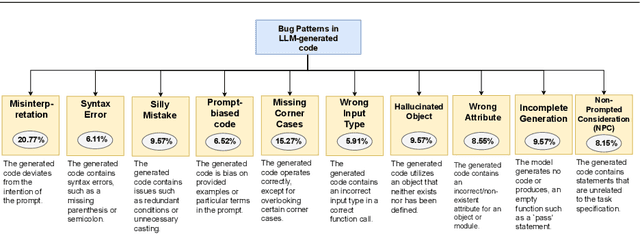Bugs in Large Language Models Generated Code: An Empirical Study
Paper and Code
Mar 18, 2024



Large Language Models (LLMs) for code have gained significant attention recently. They can generate code in different programming languages based on provided prompts, fulfilling a long-lasting dream in Software Engineering (SE), i.e., automatic code generation. Similar to human-written code, LLM-generated code is prone to bugs, and these bugs have not yet been thoroughly examined by the community. Given the increasing adoption of LLM-based code generation tools (e.g., GitHub Copilot) in SE activities, it is critical to understand the characteristics of bugs contained in code generated by LLMs. This paper examines a sample of 333 bugs collected from code generated using three leading LLMs (i.e., CodeGen, PanGu-Coder, and Codex) and identifies the following 10 distinctive bug patterns: Misinterpretations, Syntax Error, Silly Mistake, Prompt-biased code, Missing Corner Case, Wrong Input Type, Hallucinated Object, Wrong Attribute, Incomplete Generation, and Non-Prompted Consideration. The bug patterns are presented in the form of a taxonomy. The identified bug patterns are validated using an online survey with 34 LLM practitioners and researchers. The surveyed participants generally asserted the significance and prevalence of the bug patterns. Researchers and practitioners can leverage these findings to develop effective quality assurance techniques for LLM-generated code. This study sheds light on the distinctive characteristics of LLM-generated code.
 Add to Chrome
Add to Chrome Add to Firefox
Add to Firefox Add to Edge
Add to Edge